This article relies largely or entirely on a single source .(August 2022) |
Thomas Sturmy was a 13th-century landowner, nobleman, and household knight for John, King of England.
This article relies largely or entirely on a single source .(August 2022) |
Thomas Sturmy was a 13th-century landowner, nobleman, and household knight for John, King of England.
He was the younger son of Geoffrey Sturmy who held land from the king by Serjeanty. [1] This family has its origins from the Norman Baron Richard Stirmud, although they had declined since then in wealth and power. [1]
Geoffrey was likely a close associate to John, King of England when he was count of mortain (before he was king of England). [1] This conclusion is reached from the fact that Sturmy had his lands confiscated temporarily for the part he played in the revolt against Richard I of England in 1194. [1] He began his royal service as a squire in King Johns court. [1]
He was given the custody of the lands of the bishopric of Chichester briefly in March 1208 – 1209. [2] He was also given temporary custody of the Abbey of Hide along with the Breosa priories. [2] Thomas played an important role in the service of the kings buttery. [3] The kings buttery was a royal department responsible for the storage, transportation, and acquisition of barreled goods, primarily wine. [3] It was headed by the Kings Butler (Bottler). From June 1213 to April 1215 Thomas acquired and transported wine for the kings use from various storage places. [3] It is probable that Thomas Sturmy was awarded with money and food from his services in the buttery [4]
He married Lucia, widow of Hugh de Montviron, probably with help from the king due to his royal services. [5]

Hubert Walter was an influential royal adviser in the late twelfth and early thirteenth centuries in the positions of Chief Justiciar of England, Archbishop of Canterbury, and Lord Chancellor. As chancellor, Walter began the keeping of the Charter Roll, a record of all charters issued by the chancery. Walter was not noted for his holiness in life or learning, but historians have judged him one of the most outstanding government ministers in English history.
John de Gray or de Grey was an English prelate who served as Bishop of Norwich, and was elected but unconfirmed Archbishop of Canterbury. He was employed in the service of Prince John even before John became king, for which he was rewarded with a number of ecclesiastical offices, culminating in his pro forma election to Norwich in 1200. De Gray continued in royal service after his elevation to the episcopate, lending the King money and undertaking diplomatic missions on his behalf. In 1205 King John attempted to further reward de Gray with a translation to the archbishopric of Canterbury, but a disputed election process led to de Gray's selection being quashed by Pope Innocent III in 1206.
Geoffrey Ridel was the nineteenth Lord Chancellor of England, from 1162 to 1173.
Geoffrey was an illegitimate son of King Henry II of England who became bishop-elect of Lincoln and archbishop of York. The identity of his mother is uncertain, but she may have been named Ykenai. Geoffrey held several minor clerical offices before becoming Bishop of Lincoln in 1173, though he was not ordained as a priest until 1189. In 1173–1174, he led a campaign in northern England to help put down a rebellion by his legitimate half-brothers; this campaign led to the capture of William, King of Scots. By 1182, Pope Lucius III had ordered that Geoffrey either resign Lincoln or be consecrated as bishop; he chose to resign and became chancellor instead. He was the only one of Henry II's sons present at the king's death.

William de Longchamp was a medieval Lord Chancellor, Chief Justiciar, and Bishop of Ely in England. Born to a humble family in Normandy, he owed his advancement to royal favour. Although contemporary writers accused Longchamp's father of being the son of a peasant, he held land as a knight. Longchamp first served Henry II's illegitimate son Geoffrey, but quickly transferred to the service of Richard I, Henry's heir. When Richard became king in 1189, Longchamp paid £3,000 for the office of Chancellor, and was soon named to the see, or bishopric, of Ely and appointed legate by the pope.

Sir Thomas Erpingham was an English soldier and administrator who loyally served three generations of the House of Lancaster, including Henry IV and Henry V, and whose military career spanned four decades. After the Lancastrian usurpation of the English throne in 1399, his career in their service was transformed as he rose to national prominence, and through his access to royal patronage he acquired great wealth and influence.

Walter de Coutances was a medieval Anglo-Norman bishop of Lincoln and archbishop of Rouen. He began his royal service in the government of Henry II, serving as a vice-chancellor. He also accumulated a number of ecclesiastical offices, becoming successively canon of Rouen Cathedral, treasurer of Rouen, and archdeacon of Oxford. King Henry sent him on a number of diplomatic missions and finally rewarded him with the bishopric of Lincoln in 1183. He did not remain there long, for he was translated to Rouen in late 1184.
Hugh de Puiset was a medieval Bishop of Durham and Chief Justiciar of England under King Richard I. He was the nephew of King Stephen of England and Henry of Blois, who both assisted Hugh's ecclesiastical career. He held the office of treasurer of York for a number of years, which led him into conflict with Henry Murdac, Archbishop of York. In 1153, Hugh was elected bishop of Durham despite the opposition of Murdac.

Baldwin of Forde or Ford was Archbishop of Canterbury between 1185 and 1190. The son of a clergyman, he studied canon law and theology at Bologna and was tutor to Pope Eugene III's nephew before returning to England to serve successive bishops of Exeter. After becoming a Cistercian monk he was named abbot of his monastery at Forde and subsequently elected to the episcopate at Worcester. Before becoming a bishop, he wrote theological works and sermons, some of which have survived.
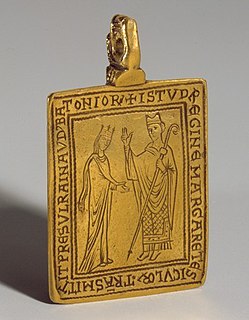
Reginald fitz Jocelin was a medieval Bishop of Bath and an Archbishop of Canterbury-elect in England. A member of an Anglo-Norman noble family, he was the son of a bishop, and was educated in Italy. He was a household clerk for Thomas Becket, but by 1167 he was serving King Henry II of England. He was also a favourite of King Louis VII of France, who had him appointed abbot of the Abbey of Corbeil. After Reginald angered Becket while attempting to help negotiate a settlement between Becket and the king, Becket called him "that offspring of fornication, that enemy to the peace of the Church, that traitor." When he was elected as a bishop, the election was challenged by King Henry's eldest son, Henry the Young King, and Reginald was forced to go to Rome to be confirmed by Pope Alexander III. He attended the Third Lateran Council in 1179, and spent much of his time administering his diocese. He was elected Archbishop of Canterbury in 1191, but died before he could be installed.
Roger de Clinton was a medieval Bishop of Coventry and Lichfield. He was responsible for organising a new grid street plan for the town of Lichfield in the 12th century which survives to this day.
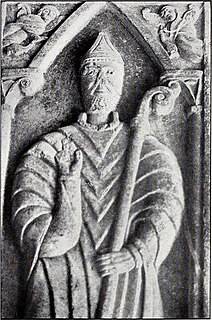
Bartholomew of Exeter was a medieval Bishop of Exeter. He came from Normandy and after being a clerk of the Archbishop of Canterbury, was made Archdeacon of Exeter in 1155. He became Bishop of Exeter in 1161. Known for his knowledge of canon law, he was involved in the Becket controversy after the appointment of Thomas Becket as Archbishop of Canterbury. After Becket's death, although he was frequently at the royal court, he mainly attended to his diocese. A number of works by him survive, including sermons and treatises on law and theology.
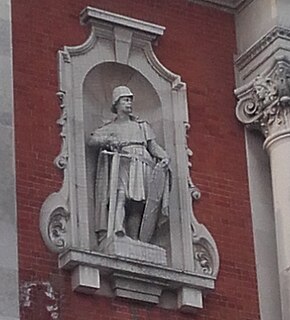
Eudo Dapifer ;, was a Norman aristocrat who served as a steward under William the Conqueror, William II Rufus, and Henry I.
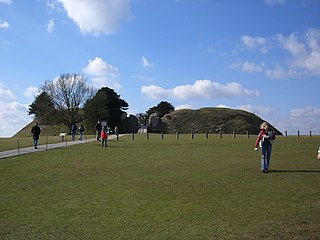
Hugh Bardulf or Hugh Bardolf was a medieval English administrator and royal justice. Known for his legal expertise, he also served as a financial administrator. He served three kings of England before his death.

William of Wrotham or William de Wrotham was a medieval English royal administrator and clergyman. Although a late 13th-century source says that William held a royal office under King Henry II of England, the first contemporary reference to William is in 1197, when he became responsible for, among other things, the royal tin mines. He also held ecclesiastical office, eventually becoming Archdeacon of Taunton, and served King John of England as an administrator of ecclesiastical lands and a collector of taxes.
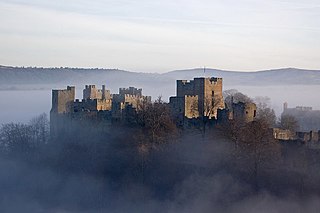
Pain fitzJohn was an Anglo-Norman nobleman and administrator, one of King Henry I of England's "new men", who owed their positions and wealth to the king.

Hugh de Neville was the Chief Forester under the kings Richard I, John and Henry III of England; he was the sheriff for a number of counties. Related to a number of other royal officials as well as a bishop, Neville was a member of Prince Richard's household. After Richard became king in 1189, Neville continued in his service and accompanied him on the Third Crusade. Neville remained in the royal service following Richard's death in 1199 and the accession of King John to the throne, becoming one of the new king's favourites and often gambling with him. He was named in Magna Carta as one of John's principal advisers, and considered by a medieval chronicler to be one of King John's "evil counsellors". He deserted John after the French invasion of England in 1216 but returned to pledge his loyalty to John's son Henry III after the latter's accession to the throne later that year. Neville's royal service continued until his death in 1234, though by then he was a less significant figure than he had been at the height of his powers.

The Angevins were a royal house of French origin that ruled England in the 12th and early 13th centuries; its monarchs were Henry II, Richard I and John. In the 10 years from 1144, two successive counts of Anjou in France, Geoffrey and his son, the future Henry II, won control of a vast assemblage of lands in western Europe that would last for 80 years and would retrospectively be referred to as the Angevin Empire. As a political entity this was structurally different from the preceding Norman and subsequent Plantagenet realms. Geoffrey became Duke of Normandy in 1144 and died in 1151. In 1152, his heir, Henry, added Aquitaine by virtue of his marriage to Eleanor of Aquitaine. Henry also inherited the claim of his mother, Empress Matilda, the daughter of King Henry I, to the English throne, to which he succeeded in 1154 following the death of King Stephen.
Robert of Burgate was a 13th-century landowner, nobleman, and household knight for John, King of England.
Robert of Ropsley was an important household knight who had a close relationship with John, King of England